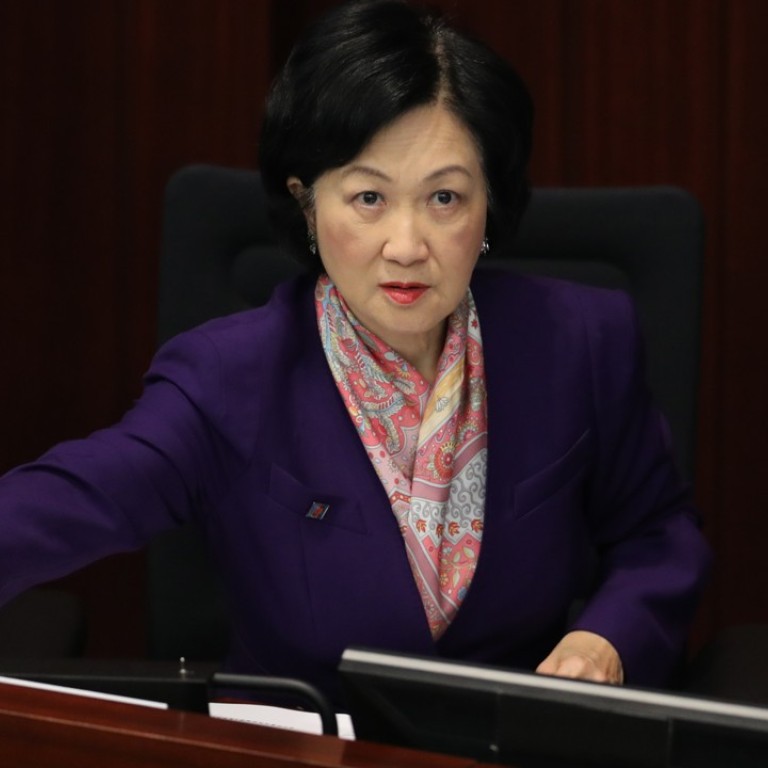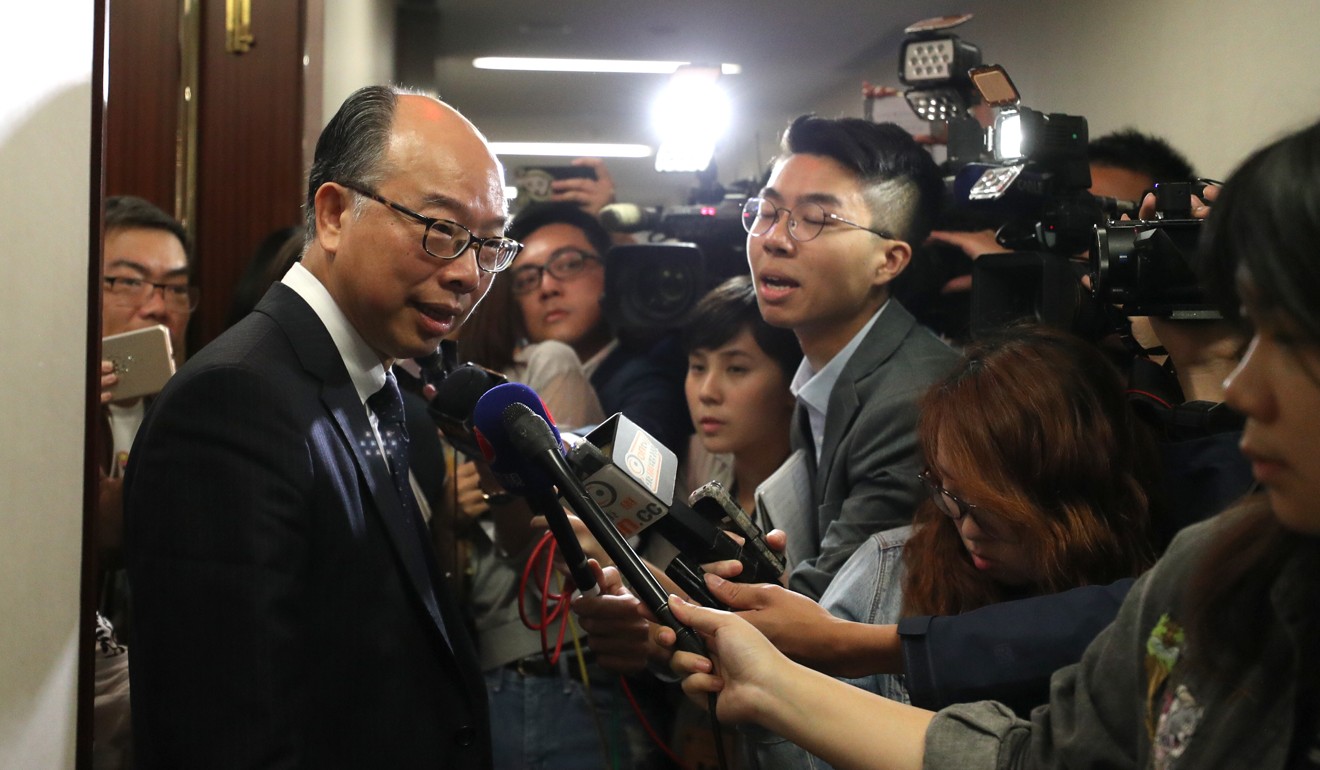
In unprecedented move, May 7 deadline set for Legco bills committee to scrutinise controversial joint checkpoint plan
Timetable laid out by panel chairwoman Regina Ip after she received letter from transport minister Frank Chan
In an unprecedented move, the chairwoman of the bills committee at Hong Kong’s legislature has set a deadline for lawmakers to scrutinise a controversial joint checkpoint plan for a cross-border rail link, aiming to close the discussion by May 7.
The Friday announcement by Regina Ip Lau Suk-yee came after she was reminded by the government – through a letter sent to her the night before – that the panel should complete its task by mid-May to ensure that train services could be commissioned in September as scheduled.
“The government is worried about the progress of the scrutiny,” the letter penned by transport minister Frank Chan Fan read, citing Legislative Council house rules that state “the scrutiny of a bill should be conducted quickly and, whenever possible, be completed within three months of its commencement”.
“The government absolutely respects Legco and hopes the lawmakers would scrutinise the bill with practical and rational attitudes according to the overall interests of Hong Kong,” Chan wrote.

Speaking in Legco on Friday, Chan denied having any intention to exert pressure on lawmakers, saying the legislation was on a very tight schedule as more time had to be reserved for discussion by the full council.
“We do have a duty of care to public interest. Also, we need to ensure by all possible and reasonable measures to enable the express rail to start operating by [the end of] September – so that’s the target and the expectation of the community,” Chan said.
On the controversy surrounding the constitutionality of the plan, Chan asserted: “From day one to now, there have been two schools of thought on the legal dispute – no matter how we discuss it, we will just never reach a consensus.”
Is Hong Kong ‘ceding’ land to mainland China? Fears grow after revelation joint checkpoint at rail terminus will not operate under lease
The joint checkpoint arrangement would see national laws enacted in part of the West Kowloon terminus in Hong Kong, which is viewed by opposition pan-democrat lawmakers and a section of the city’s legal professionals as contravening the Basic Law, the city’s mini-constitution.
The bills committee, which began work on February 12 and comprises 64 lawmakers, had its 12th meeting on Friday morning. Ip announced that six more meetings lasting a total of 12 hours were scheduled before the May 7 deadline, and extra meetings could be arranged if needed.
Her unprecedented move sparked an outcry from the pro-democracy camp, while the pro-establishment bloc supported it as a necessary one.
“We are talking about a bill that is probably contravening the [city’s mini-constitution] … The bill is of profound influence,” Labour Party lawmaker Fernando Cheung Chiu-hung said. “[Setting a deadline] is irresponsible. It is unprecedented. I condemn you, [Ip].”
But Starry Lee Wai-king, chairwoman of the Democratic Alliance for the Betterment and Progress of Hong Kong, said the unusual move was a responsible one, given the filibustering tactics adopted by opposition members on the committee.
The pan-democrats later took aim at the government, and the transport minister in particular.
“The administration is definitely trying to interfere with the work of the legislature. It is absolutely unacceptable, unconstitutional and unfair to lawmakers [trying] to do their job well,” Civic Party lawmaker Tanya Chan said.
She added that the pan-democrats would write a letter to Hong Kong leader Carrie Lam Cheng Yuet-ngor in protest at the administration’s interference.
“You had years and years to plan this whole railway, and they leave it to the end for those problematic legal issues. You can’t say, well, you have to get it started by certain dates. If you’ve got a job, you do it properly,” Dykes said.
He said it was up to the lawmakers to consider if more time was needed, but added: “If they are not persuaded, they obviously shouldn’t vote for [the arrangement].”
Hong Kong express rail will not run until proven safe after derailment
Meanwhile, the MTR Corporation announced that it would resume trial runs of the high-speed trains on Friday, though a maintenance track involved in a previous incident would remain closed until required changes were fully implemented.
The tests were suspended earlier after four wheels on a train “shifted out of position” during a trial run last Tuesday.
Experts attributed the incident to site-specific factors and concluded that a “deformation of the I-beam assembly structure” had been caused by the tightly curved track, a press statement read.
The mainline track needed no such I-beam structure, the statement continued.
Additional reporting by Alvin Lum

